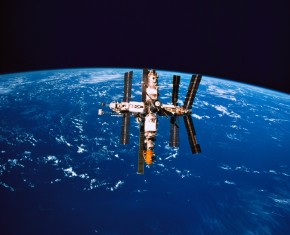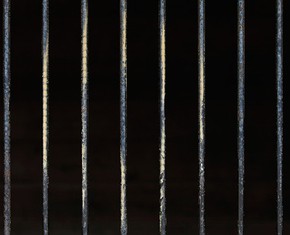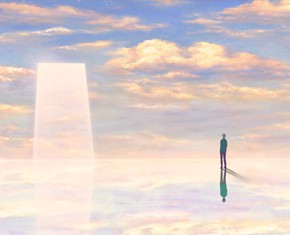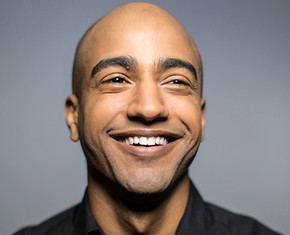The views expressed in our content reflect individual perspectives and do not represent the authoritative views of the Baha'i Faith.
You ain’t heard nothin’ yet, folks! – Al Jolson, in The Jazz Singer, the first feature film with synchronized dialogue.
Progress has not followed a straight ascending line, but a spiral with rhythms of progress and retrogression, of evolution and dissolution. – Goethe
The central fact is that we live at one of those points in history when one way of living is in its death throes, and another is being born. – Rollo May
If anyone still thinks that humanity evolves and progresses in a fairly plodding, linear way, the past hundred years, which saw a tremendous explosion of knowledge, should challenge that notion.

In fact, enormous and relatively sudden changes in human knowledge and development have happened periodically throughout history. The flowering of great cultures–the Egyptian or the Greek or the Persian or the European Renaissance or the Iroquois Nation–seems to occur intermittently, when inspired peoples throw off centuries of oppressive sameness and suddenly make fundamental and even revolutionary changes in the way they live and interact. These cultures, driven by powerful spiritual and intellectual forces and scientific discoveries, break patterns and then rapidly shift humanity’s paradigms. Massive social change ensues, establishing new modes of thought and action. Contemporary historians and scholars agree that our world culture today rides the crest of just such a history-making breakthrough on a massive global level.
This process of inductive maturational leaps, the Baha’i teachings explain, begins with the arrival of a messenger or prophet of God, the founder of a Faith. Usually appearing in corrupt, degraded societies, these messengers proclaim a new and yet ancient system of wisdom and action, which destabilizes and then upends the old order and begins to spiritually recreate the world. Humanity invariably treats these messengers cruelly, torturing or imprisoning or killing them for their challenge to the status quo.
Their teachings influence a few pure, searching souls, and those people influence others. The message spreads. At first unnoticed and almost invisible, then persecuted and suppressed, the prophet’s followers create new ways of life for more and more people. Societies start to spring up around the new message. Whole cultures decline and fall at these points in human history, because spring always sweeps away the detritus of winter. A renaissance and a re-awakening occurs; fresh infusions of spirit, energy and creativity surge through humanity; and we gradually remake ourselves and our civilization.
A massive, global cycle of growth gets underway, supplanting the decay of the old cycle, engendering light and life. The arts, the sciences and the sum of human knowledge all blossom in a seemingly sudden and exponential way. Individuals respond to the light of the new revelation, but so do families, villages, tribes, cities, nations, and soon entire civilizations, and the reverberations sound down through successive centuries. The prime movers of humanity, these messengers of God awaken and enlighten the world. The founder of systems theory, scientist Ervin Laszlo, explains:
Today, the average person has a linear concept of progress. The concept of historical progress now emerging in the sciences is less naive and more realistic than the linear progress (or regress) concept dominant in public consciousness. Although the scientific concept has been discovered only recently, remarkably enough, its main outlines have been anticipated in the nineteenth century by a Persian prophet whose influence is only now beginning to be felt in the modern world. Over one hundred years ago, Baha’u’llah, founder of the Baha’i Faith, proclaimed that the oneness of mankind will be achieved in evolutionary stages replete with strife, chaos and confusion. The different stages in mankind’s development are regarded as similar to the stages in the life of an individual: the present chaotic times are compared to the stage of turbulent adolescence which precedes full maturity. Writing in lifelong confinement in the Ottoman prison colony of Acre (Akka) towards the end of the nineteenth century, Baha’u’llah noted that ’winds of despair’ are blowing from every direction. The strife that divides and afflicts the human race is increasing; the signs of impending convulsions can be discerned. A hundred years later his followers, members of the now rapidly growing Baha’i world community, recognize this non-linear evolutionary trend and are committed to acting in accordance with it. – Ervin Laszlo, The Inner Limits of Mankind, pp. 120-122.
This period of profound tumult and disorder always accompanies the emerging new breakthrough, much as it did when the Roman Empire collapsed, and the societal safety net that Christianity had quietly woven beneath it stood ready to pick up the pieces and begin anew.
When one social order dies, and another develops in its place, a two-fold process goes to work in the world. Historians call it an age of transition, frustration, chaos or tribulation, and it brings disruption and change to every area of human life. The Guardian of the Baha’i Faith, Shoghi Effendi, described it:
As we view the world around us, we are compelled to observe the manifold evidences of that universal fermentation which, in every continent of the globe and in every department of human life, be it religious, social, economic or political, is purging and reshaping humanity in anticipation of the Day when the wholeness of the human race will have been recognized and its unity established. A two-fold process, however, can be distinguished, each tending, in its own way and with an accelerated momentum, to bring to a climax the forces that are transforming the face of our planet. The first is essentially an integrating process, while the second is fundamentally disruptive. The former, as it steadily evolves, unfolds a System which may well serve as a pattern for that world polity towards which a strangely-disordered world is continually advancing; while the latter, as its disintegrating influence deepens, tends to tear down, with increasing violence, the antiquated barriers that seek to block humanity’s progress towards its destined goal. The constructive process stands associated with the nascent Faith of Baha’u’llah, and is the harbinger of the New World Order that Faith must erelong establish. The destructive forces that characterize the other should be identified with a civilization that has refused to answer to the expectations of a new age, and is consequently falling into chaos and decline. – The World Order of Baha’u’llah, p. 170.
















Comments
Sign in or create an account
Continue with Googleor